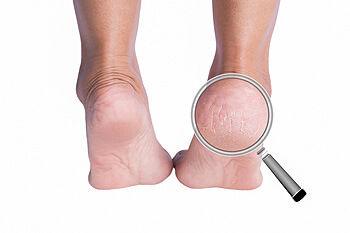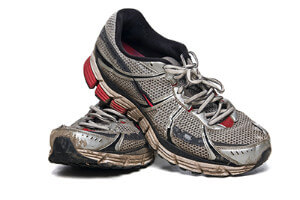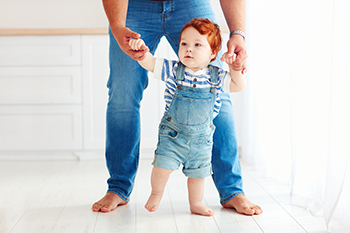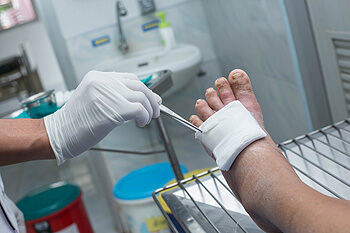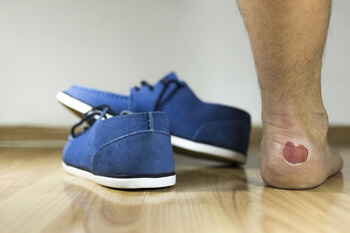
Blisters on the feet can put a damper on enjoying everyday activities. They are defined as small pockets of fluid that naturally form over damaged skin. A blister is filled with protective liquid that protects the raw skin. It will gradually drain on its own when new skin has formed. It is important to learn about how to prevent blisters from developing, and there are simple methods that can be implemented. These can include wearing shoes and socks that fit correctly, and removing any pebbles that may have gotten into the shoes or socks to avoid irritation. Additionally, it is beneficial to remove the socks at the first sign of tenderness or redness. A protective covering can be worn over the blister, and this is generally effective in preventing premature popping. If you would like more information about how to treat existing blisters and to learn about additional prevention methods, please consult with a podiatrist.
Blisters are prone to making everyday activities extremely uncomfortable. If your feet are hurting, contact the podiatrists of Boston Common Podiatry. Our doctors can provide the care you need to keep you pain-free and on your feet.
Foot Blisters
Foot blisters develop as a result of constantly wearing tight or ill-fitting footwear. This happens due to the constant rubbing from the shoe, which can often lead to pain.
What Are Foot Blisters?
A foot blister is a small fluid-filled pocket that forms on the upper-most layer of the skin. Blisters are filled with clear fluid and can lead to blood drainage or pus if the area becomes infected.
How Do Blisters Form?
Blisters on the feet are often the result of constant friction of skin and material, usually by shoe rubbing. Walking in sandals, boots, or shoes that don’t fit properly for long periods of time can result in a blister. Having consistent foot moisture and humidity can easily lead to blister formation.
Prevention & Treatment
It is important to properly care for the affected area in order to prevent infection and ease the pain. Do not lance the blister and use a Band-Aid to provide pain relief. Also, be sure to keep your feet dry and wear proper fitting shoes. If you see blood or pus in a blister, seek assistance from a podiatrist.
If you have any questions, please feel free to contact our office located in Boston, MA . We offer the newest diagnostic and treatment technologies for all your foot care needs.
